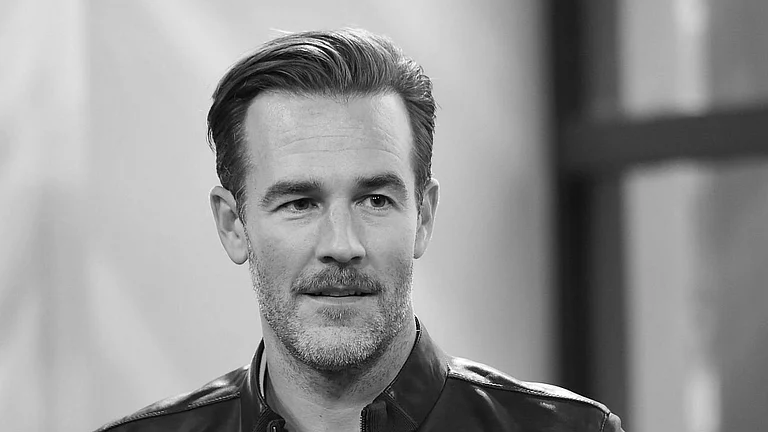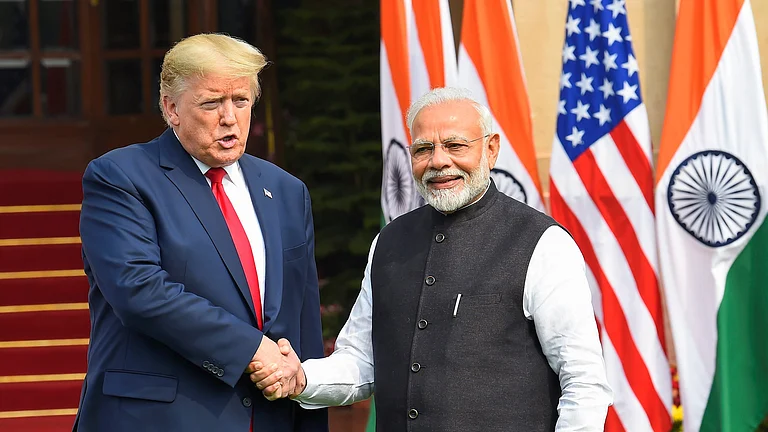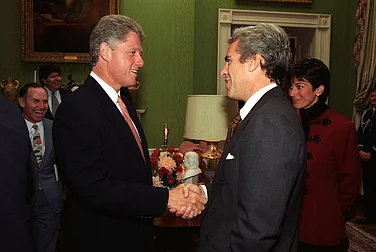US House Speaker Nancy Pelosi was believed headed for Taiwan on Tuesday on a visit that could significantly escalate tensions with Beijing, which claims the self-ruled island as its own territory. Pelosi is on an Asian tour this week that is being closely watched to see if she will defy China's warnings against visiting the island republic, a close US ally.
A plane carrying Pelosi and her delegation left Malaysia on Tuesday after a brief stop that included a working lunch with Prime Minister Ismail Sabri Yaakob, It was unclear where it was headed, although local media in Taiwan reported that Pelosi would arrive on Tuesday night. The United Daily News, Liberty Times and China Times - Taiwan's three largest national newspapers - cited unidentified sources as saying she would spend the night in Taiwan.
Barricades were erected outside the Grand Hyatt Hotel in Taipei where Pelosi was expected to stay amid heightened security.
China, which regards Taiwan as a renegade province to be annexed by force if necessary, has repeatedly warned of retaliation if Pelosi visits, saying its military will “never sit idly by.” “The US and Taiwan have colluded to make provocations first, and China has only been compelled to act out of self-defense,” Chinese Foreign Ministry spokesperson Hua Chunying told reporters Tuesday in Beijing.
Hua said China has been in constant communication with the U.S. and made clear “how dangerous it would be if the visit actually happens.” Any countermeasures China take will be “justified and necessary" in the face of Washington's “unscrupulous behavior," she said.
Pelosi's visit to Taiwan might escalate tensions with China. She is expected to arrive in Taiwan late on Tuesday night along with a Congressional delegation, according to VOA News. China has threatened military retaliation to the visit.
There have been no official announcements of the visit though, despite US media citing sources as confirming the visit. Local media in Taiwan has also reported that Pelosi will arrive in the capital Taipei on Tuesday night, becoming the highest-ranking elected US official to visit in more than 25 years.
The United Daily News, Liberty Times and China Times —Taiwan's three largest national newspapers— cited unidentified sources as saying that Pelosi would fly to Taipei and spend the night after visiting Malaysia.
China, which regards Taiwan as its territory, has warned of repercussions, saying its military will "never sit idly by" if Pelosi pushes ahead with the visit. The White House on Monday decried Beijing's rhetoric, saying the US has no interest in deepening tensions with China and "will not take the bait or engage in saber rattling".
White House National Security Council spokesperson John Kirby underscored that the decision on whether to visit the self-ruled island Taiwan was ultimately Pelosi's. He noted that members of Congress have routinely visited Taiwan over the years.
Kirby said administration officials are concerned that Beijing could use the visit as an excuse to take provocative retaliatory steps, including military action such as firing missiles in the Taiwan Strait or around Taiwan, or flying sorties into Taiwan's airspace and carrying out large-scale naval exercises in the strait.
"Put simply, there is no reason for Beijing to turn a potential visit consistent with long-standing U.S. policy into some sort of crisis or use it as a pretext to increase aggressive military activity in or around the Taiwan Strait," Kirby said.
In lines with expectations of provocative Chinese behaviour, Reuters on Tuesday cited sources to report that several Chinese air force planes flew close to the median line dividing the Taiwan Strait.
"The Chinese aircraft repeatedly conducted tactical moves of briefly "touching" the median line and circling back to the other side of the strait on Tuesday morning," reported Reuters on Tuesday, citing sources.
US Secretary of State Antony Blinken also urged China to "act responsibly" in the event that Pelosi proceeds with the visit.
He said, "If the Speaker does decide to visit, and China tries to create some kind of a crisis or otherwise escalate tensions, that would be entirely on Beijing. We are looking for them, in the event she decides to visit, to act responsibly and not to engage in any escalation going forward."
China has been steadily ratcheting up diplomatic and military pressure on Taiwan. Threats of retaliation for a visit by Pelosi have driven concerns of a new crisis in the Taiwan Strait, which separates the two sides, that could roil global markets and supply chains.
Beijing sees official American contact with Taiwan as encouragement to make the island's decades-old de facto independence permanent, a step US leaders say they don't support. Pelosi, head of one of three branches of the US government, would be the highest-ranking elected American official to visit Taiwan since then-Speaker Newt Gingrich in 1997.
Pelosi kicked off her Asian tour in Singapore on Monday but her purported visit to Taiwan has raised concerns in the region. Singapore Prime Minister Lee Hsien Loong "highlighted the importance of stable US-China relations for regional peace and security" during talks with Pelosi, the city-state's foreign ministry said.
This was echoed by Japan's Foreign Minister Yoshimasa Hayashi in Tokyo, who said stable ties between the two rival powers "are extremely important for the international community as well."
Taiwan and China split in 1949 after the Communists won a civil war on the mainland. Both sides claim to be real China. The mainland China with seat of power at Beijing considers Taiwan to be a breakaway province which it intends to unify one day. The two countries have no official relations but are linked by billions of dollars of trade and investment.
The United States switched diplomatic recognition from Taipei to Beijing in 1979, but maintains informal relations with Taiwan. Washington is obligated by the Taiwan Relations Act, a federal law, to see that Taiwan has the means to defend itself. Washington's "One China Policy" says it takes no position on the status of the two sides but wants their dispute resolved peacefully.
Beijing promotes an alternative "One China Principle" that says they are one country and the Communist Party is its leader.
President Joe Biden has in last one year made three comments that suggest the US is sharpening its Taiwan policy in the island nation's favour. All instances attracted sharp responses from Beijing. However, despite Biden's comments, the White House maintains that there has been no change in US policy which adheres to One China Policy when it comes to Beijing and Strategic Ambiguity when it comes to Taiwan's defence in case of Chinese aggression.
Under "Strategic Ambiguity" policy, the United States has assured Taiwan of help in case of Chinese attack but has been deliberately vague about the nature of that help.
In addition to Biden's comment in May suggesting to pledge military defence of Taiwan, Biden made two more comments last year, one in October 2021 and the second in August 2021, when Vox notes, Biden had compared the US approach to Taiwan with the US pledge to defend NATO countries, even as an official later walked back those remarks.
Pelosi's expected visit to Taiwan has invoked a sharp debate in the United States. Zack Cooper, a researcher at think tank American Enterprise Institute, summarises the debate: "Some believe Pelosi should cancel the visit because the United States should generally avoid actions that worsen tensions with China. Others argue that Pelosi should go because Washington should not back down in anticipation of pressure from Beijing."
Cooper wrote in The Washington Examiner that the timing of the visit is "poor". He highlighted that Pelosi first wanted to visit Taiwan in April and that would have been a good time, but developments including Biden's comments on Taiwan and upcoming Communist Party Congress could complicate a visit now.
He noted, "The situation would have been somewhat different in April, when Pelosi first planned to visit Taiwan. At that time, Beijing had less time to prepare its response options. The Party Congress was four months further away. Joe Biden had not yet muddied the waters by suggesting the United States has a commitment to defend Taiwan. And Mike Pompeo and Mark Esper had not yet traveled to Taipei and suggested doing away with the 'One China Policy'."
(With AP inputs)


























